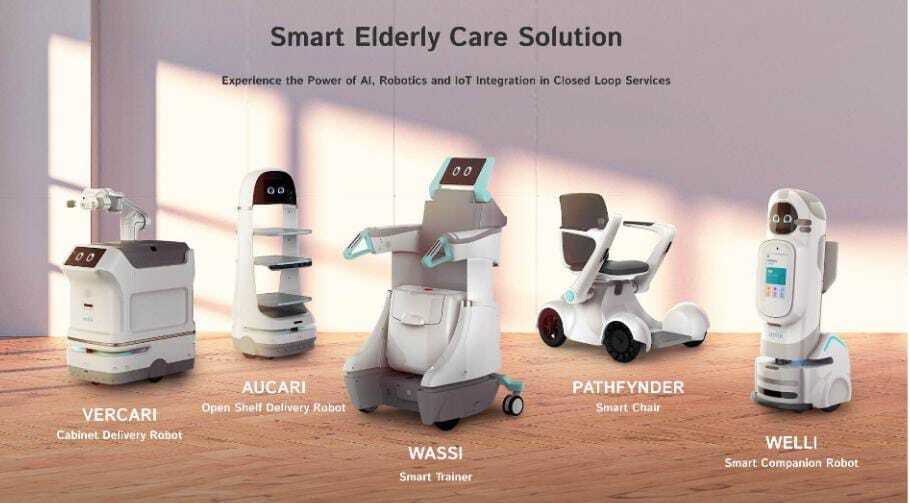
As robots and automation increasingly shape the world around us, the importance of user interface and experience (UI/UX) design has never been more critical. At the forefront of this evolution is Yutong Zhang, a visionary UI/UX designer whose work is transforming how humans interact with advanced technologies. From crafting intuitive interfaces for engineers deploying smart building systems to creating user-friendly experiences for elderly care robots, Yutong’s career is a powerful testament to the impact of human-centered design in robotics.
Yutong has been instrumental in several pioneering projects at Futronics and PassiveLogic, where her focus has been on creating thoughtful, accessible, and effective user experiences. Her design philosophy revolves around usability, empathy, and a deep understanding of user needs. As a Junior UI/UX Designer at PassiveLogic, Yutong spearheaded design initiatives for building automation systems that have since been adopted by leading companies, including Prologis and NVIDIA. At Futronics, she played a critical role in developing upper limb rehabilitation devices, emphasizing empathy and ease of use for vulnerable user groups.
Yutong’s academic foundation is equally impressive. She earned a Bachelor of Science in Interaction Design with distinction from the ArtCenter College of Design and further honed her skills through a collaborative program at Tsinghua University, focusing on product development for aging populations. Her talent and dedication have been recognized with numerous prestigious awards, including the RedDot Design Award and iF Design Award.
In a recent interview, Yutong shared her insights on her design approach, challenges in user interface design for robotics, and her vision for the future of UI/UX in this rapidly evolving field. Central to her philosophy is the principle of empathy. Yutong emphasizes that understanding users' needs and experiences is essential, whether designing smart building systems or elderly care robots. In building automation, her focus is on simplicity and efficiency for non-technical users, while in elderly care, she prioritizes accessibility and encouragement.
Addressing the challenges of designing user-friendly robots for non-technical users, Yutong identifies the need to bridge the gap between complex technologies and everyday users. She strives to create intuitive designs that minimize cognitive load, incorporating clear visual cues and simple controls to enhance user interaction. This approach is particularly vital in the context of elderly care, where a comforting and motivating interface can significantly impact user experience.
Yutong translates empathy into her designs through the use of soft colors, clear typography, and inclusive language. She ensures that her interfaces adapt to various levels of ability, fostering confidence in users rather than frustration. When integrating complex technologies like AI-driven predictive maintenance, she abstracts complexity while maintaining functionality, presenting information in a digestible format.
Recognizing the importance of customization, Yutong implements role-based features that cater to diverse user needs. For instance, in building automation, she designs dashboards that provide simplified views for non-technical users while offering detailed options for engineers. Similarly, her work with elderly care robots includes customization that adjusts task difficulty based on users' physical conditions and rehabilitation progress.
Accessibility is another cornerstone of Yutong's design philosophy. She integrates features such as text-to-speech for visually impaired users, large touch targets for those with limited dexterity, and high-contrast color schemes. These considerations ensure that her designs are inclusive and cater to a wide range of users.
As Yutong reflects on the trends shaping UI/UX design in robotics and automation, she notes the growing integration of AI and machine learning, which enables more adaptive and personalized user interfaces. Voice-first interfaces are also on the rise, especially for users with limited mobility or vision, while the emphasis on accessibility and inclusivity is becoming increasingly central.
Throughout her journey, Yutong has learned the importance of balancing user needs with business and technical constraints. Effective communication and collaboration across teams are vital for finding creative solutions that enhance user experience without compromising business objectives.
Yutong Zhang's journey through the world of UI/UX design is a testament to her dedication to improving human interaction with technology. Her focus on empathy, accessibility, and innovative design has redefined the possibilities of user experience in the fields of robotics and automation. As she continues to push the boundaries of what’s possible, Yutong remains committed to making technology more approachable, effective, and meaningful for all users. Her work not only drives the industry forward but also serves as a powerful reminder of the importance of putting people at the center of technological advancement. Recently, she was nominated by the UX Design Award for her smart elderly care solution, further highlighting her impact on the field.
Fame Media
www.famemediaus.com
Writer Sherry Lee,
Hollywood Legends Editor in Chief
Website of Source: www.famemediaus.com
Source: Story.KISSPR.com
Release ID: 1263646
